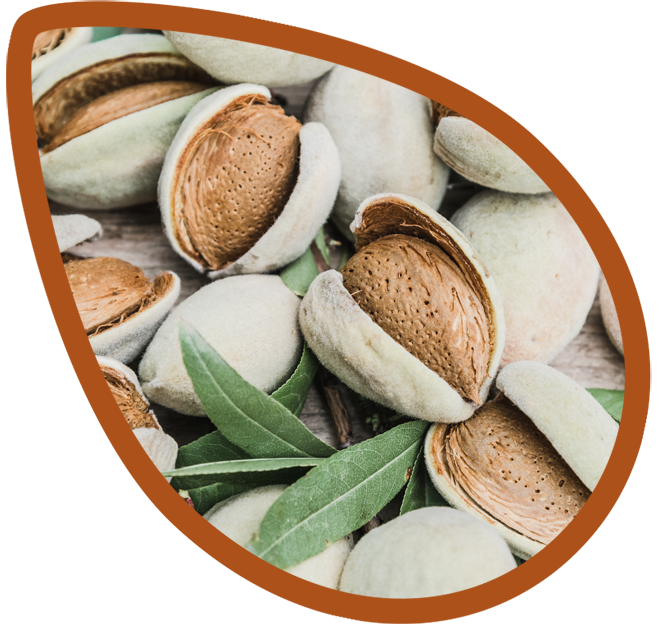Nutritional benefits
A key element of the Mediterranean diet from time immemorial, the almond has a rich nutritional profile and, like other nuts and dried fruit, is essential to maintaining a healthy diet.
For example, it has a high fat content (particularly unsaturated fats; in other words, those that benefit cardiovascular health) and is a great source of good-quality plant proteins rich in essential amino acids.
It has a high calorific value, but this is precisely why it has such great satiating power.
Its mineral content includes calcium. In fact, it is one of the plant sources that is richest in calcium. Almond milk is often therefore used as a substitute for cow’s milk in cases of intolerance, and its consumption is recommended to strengthen the bones and prevent osteoporosis. This is partly due to its phosphorus content, which also guarantees good bone quality.
Moreover, it has moderate quantities of group B vitamins and is a good source of vitamin E, which has an antioxidant action (in addition to significant quantities of zinc and phytosterols).
The above means that almonds are often recommended for growing children and athletes.

Vitamins
Component
Value/unit
Proximals
Componet
Value/unit
Carbohydrates
Component
Value/unit
Fats
Component
Value/unit
Minerals
Component
Value/unit
According to figures from the Ministry of Science and Innovation’s Spanish Food Composition Database (BEDCA), the almond has the following attributes:
Because of the above, the four countries targeted by the campaign all recommend the regular consumption of almonds and other nuts and dried fruit.
These are the guidelines published by the different States, according to the European Commission:
-
- Spain: “Nuts and dried fruits are a source of fibre, plant-based proteins and omega-3 fatty acids: unsaturated fats that benefit cardiovascular health”.
- Germany: “25 g of nuts and dried fruit can substitute a portion of fruit”.
- France: “[Consume] a handful of salt-free nuts and dried fruit a day”.
- Portugal: “Consume nuts and dried fruit as part of your diet”.
